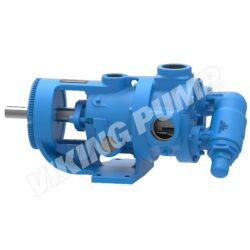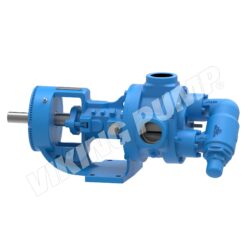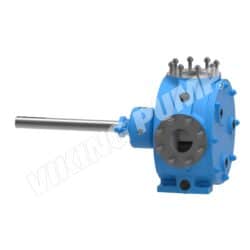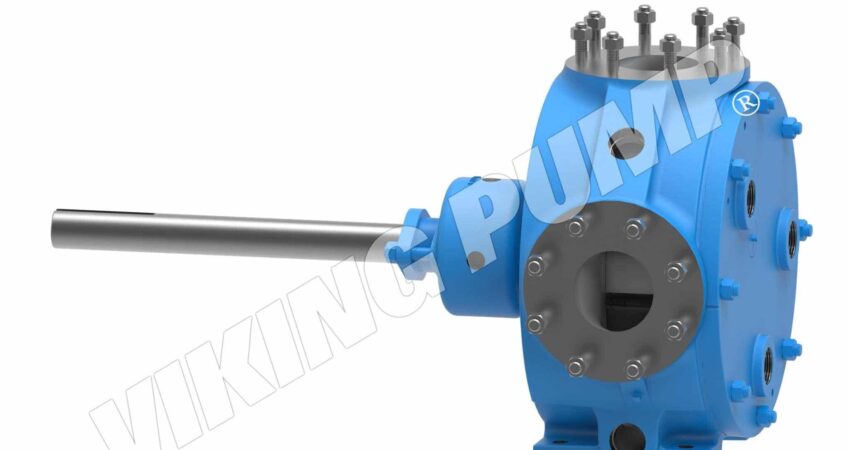Are your Asphalt Pumps in prime working condition? Whether you need a new pump for road and parking lot paving projects, or service on your existing asphalt pump, Kerr Pump & Supply has the expertise and the right Viking Asphalt Pumps for the job.
Asphalt needs a pump that can handle the oil based liquid at elevated temperatures to reduce the viscosity. The pump also needs a source of heat like jacketing or electric heat to prevent the product from solidifying in the pump.
Asphalt Pump Selection
We recommend that you take the following into consideration when selecting a pump for asphalt cement applications:
- Steel fitted construction and extra clearances may be required, depending on viscosity.
- Bronze bushings can be utilized for temperatures up to 232°C (450°F). Carbon graphite is required for temperatures above 232°C. Note: High temperature graphite may be required for some pump sizes.
- Acceptable shaft seals include:
- Packing
- Cartridge lip seal with quench
- Single metal bellows mechanical seal with hard faces and quench
- Double metal bellows mechanical seal with hard faces (inboard) and a pressurized barrier fluid

Viking Pump Asphalt Cement Recommendations
224A
Cast Iron
Jacketed for steam/oil heating prior to pump startup
Capacities to 500 GPM

124E
Cast Iron
Electric heating prior to pump startup
Capacities to 500 GPM

34
Cast Iron
Jacketed for steam/oil heating prior to pump startup
Lower pressures
Capacities to 450 GPM

Asphalt Cement Viscosity
Asphalt Viscosity also influences your pump selection. Asphalt is also known as bitumen – that sticky, black and highly viscous liquid or semi-solid form of petroleum. Asphalt is man’s earliest organic engineering material. Its use as an adhesive and waterproof material dates back to the dawn of civilization. It is still used today largely for road building, roofing and various types of repair work where its water-proofing qualities are required, as well as in rubber and adhesive compounds.
Asphalt viscosity is graded according to temperature and setting speed (once placed on the road, after aging due to the heating and mixing process). The following are general uses of some common grades of asphalt:
RS-1 Low viscosity for penetration and surface treatment.
RS-2 High viscosity for surface treatment.
MS-1 Low viscosity for re-tread mixes with coarse aggregate.
MS-2 Medium viscosity for plant mixers with coarse aggregates.
SS-1 For fine aggregate mixes.

